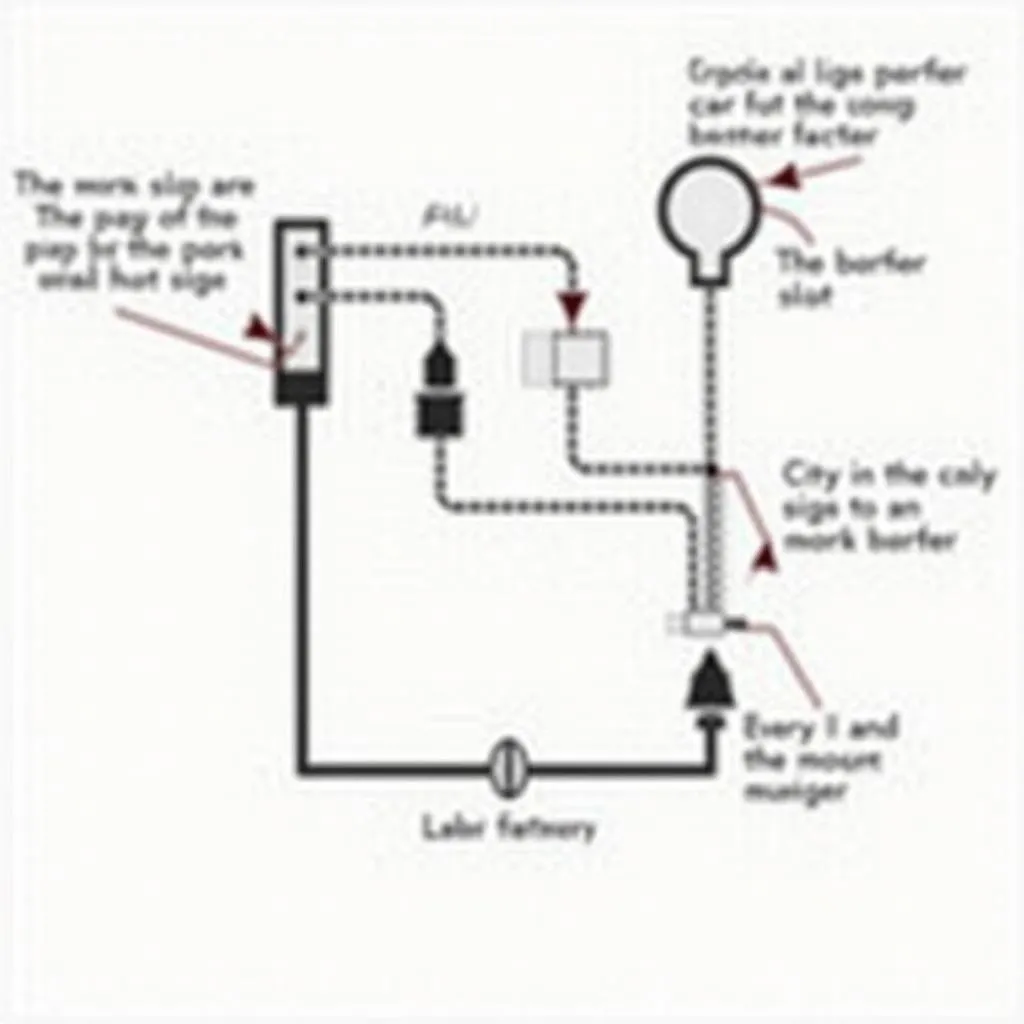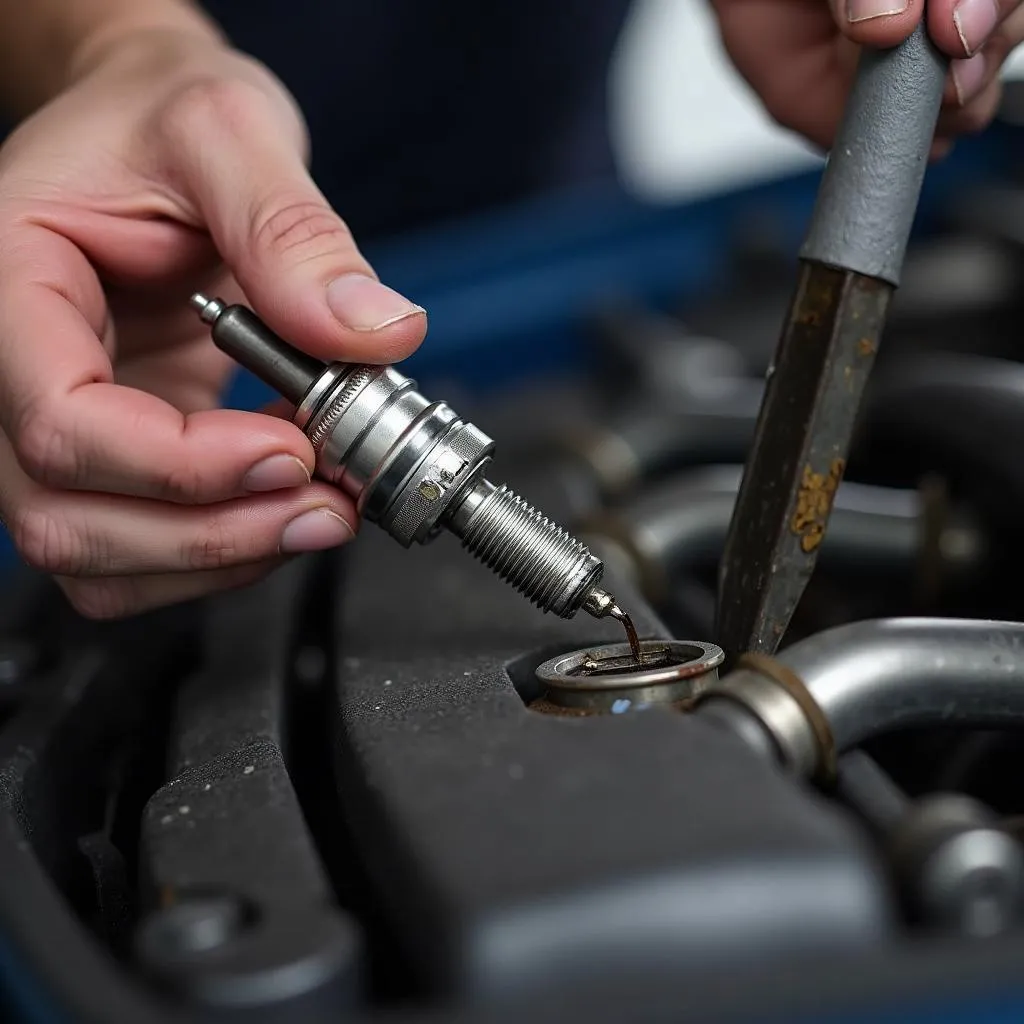Imagine this: You’re running late, rushing to your car, coffee in hand. You slide into the driver’s seat, put the key in the ignition, and…nothing. The engine doesn’t even try to turn over. Suddenly, that quick coffee run doesn’t seem so important anymore.
We’ve all been there. The car ignition system, often taken for granted, plays a crucial role in our daily lives. But what exactly is it, and why should you care about its inner workings?
The Significance of a Tiny Turn
From the perspective of a seasoned auto mechanic like myself, the car ignition system is the unsung hero of your vehicle. It’s the bridge between your key and the powerful engine roaring to life. Understanding its importance can save you time, money, and a whole lot of frustration on a busy morning.
Technically speaking, the ignition system is responsible for generating a high-voltage electrical spark that ignites the air-fuel mixture in your engine’s cylinders. This controlled explosion is what ultimately propels your car forward.
Economically, a well-maintained ignition system translates to improved fuel efficiency. A faulty ignition can lead to incomplete combustion, wasting fuel and costing you more at the pump.
A Spark of Genius: How It All Works
Let’s break down the magic behind the car ignition:
- The Key: Your car key, in a traditional ignition system, acts as a switch. When you turn it, it completes a circuit.
- The Battery: The battery provides the initial electrical current needed to power the system.
- The Ignition Switch: This switch, activated by your key, directs the battery’s power to the next component in line.
- The Ignition Coil: This small but mighty component acts as a transformer, increasing the battery’s low voltage to a powerful surge.
- The Distributor: This component (in older vehicles) ensures the high-voltage electricity reaches the correct spark plug at the right time.
- Spark Plugs: These small plugs, positioned in each cylinder, create the spark that ignites the air-fuel mixture.
 Car ignition system components diagram
Car ignition system components diagram
Common Ignition System Hiccups
Now, just like any complex system, the ignition can encounter a few bumps in the road. Here are some telltale signs that your ignition might need some TLC:
- Difficulty Starting: If your engine cranks slowly or requires multiple attempts to start, it could signal a weak battery or a failing ignition switch.
- Engine Misfires: A sputtering engine, especially during acceleration, might point to worn-out spark plugs or issues with the ignition coil.
- Rough Idling: If your engine feels shaky and unstable while idling, it could indicate problems with the ignition timing or faulty spark plug wires.
Keep the Spark Alive: Maintenance Tips
Prevention is always better than a tow truck! Here are some proactive steps to keep your ignition system in top shape:
- Regular Checkups: Just like you wouldn’t skip your annual checkup, make sure your car gets routine maintenance, including inspections of the ignition system.
- Battery Care: The battery is the heart of your ignition system. Keep the terminals clean and ensure it’s holding a proper charge.
- Spark Plug Replacement: Spark plugs wear down over time. Refer to your owner’s manual for the recommended replacement interval.
 Mechanic inspecting spark plugs in a car engine
Mechanic inspecting spark plugs in a car engine
Beyond the Basics: FAQs and More
Here are some common questions car owners have about their ignition systems:
- Can I replace a faulty ignition switch myself? While possible, it’s generally recommended to leave this task to a qualified mechanic. The process can be intricate and varies significantly between car models.
- How long do car batteries typically last? Car batteries have an average lifespan of 3 to 5 years, but this can vary depending on climate and usage.
- What’s the difference between a traditional ignition system and an electronic one? Modern vehicles often feature electronic ignition systems that eliminate the distributor and use sensors and computers for precise timing and control.
Unlocking Further Automotive Insights
Want to learn more about keeping your car running smoothly? Check out these related articles:
- Autel Remote Start: Explore the convenience of remote starting and its impact on your car’s ignition.
- Car Key Cloner: Discover the technology behind car key cloning and how it relates to your vehicle’s security and ignition system.
A Smooth Ride Starts with Understanding
Just like a well-oiled machine, your car’s ignition system needs a little attention to keep things running smoothly. By understanding its components, recognizing potential issues, and practicing preventative maintenance, you can ensure many miles of hassle-free driving. And remember, if you ever find yourself stranded with ignition troubles, a trusted mechanic is just a call away!
Need help diagnosing a tricky car problem? Our team of automotive experts is available 24/7 to assist you. Contact us on WhatsApp at +84767531508 for personalized support.


